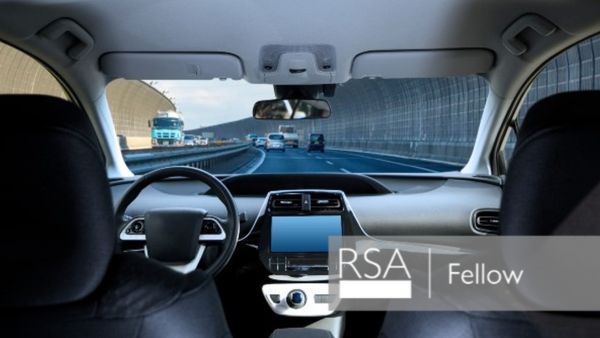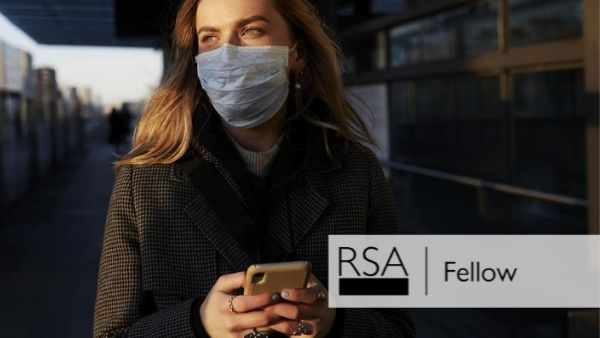Research being undertaken by three London universities suggests that public attitudes about contact tracing shows more support for an NHS centralised system than it does for a decentralised system. Writing on behalf of the team, Dr Julia Yesberg, Dr Krisztián Pósch, Prof Jonathan Jackson and Dr Emmeline Taylor outline the findings that show that mass support will depend on limiting privacy intrusion while maximising public health effectiveness, trust in government and maintaining the sense of duty and solidarity that drove compliance in the first phase of lockdown.
As lockdowns around the world are progressively lifted, many countries are looking to contact-tracing apps, in combination with more traditional ‘shoe-leather’ track and trace, to keep on top of new Covid-19 cases and prevent a second peak of infections. But the technology used and the level of privacy intrusion vary widely. Apple and Google have teamed up to offer countries solutions that will help turn iPhone and Android devices into contact-tracing devices. This model is decentralised, meaning that data only passes between users’ phones and is not stored on a central server. Many European countries, including Germany, Italy, Ireland, Austria and Switzerland, are backing this model.
Other countries – the UK, France, Norway, India, Singapore and Australia – are opting instead for homegrown apps to give their health authorities greater control over the data. On 4 May, the UK government announced the launch of a contact-tracing app trial on the Isle of Wight, with the aim of rolling this out across England in mid-May (this has since been delayed). Unlike the Apple-Google model, when people report Covid-19 symptoms, the UK app shares data with a centralised health service database. The hope is that this system will provide live data on the progression of the virus, informing policymakers about its geographic spread and the much discussed ‘R number’ in different parts of the UK.
Researchers at the University of Oxford have warned that contact-tracing apps will only be effective at managing the epidemic if over 60% of the population use them. Yet, only one-fifth of Norway’s adult population are actively using their contact-tracing app, and in Singapore – a country quite used to state surveillance – only 25% of the population has downloaded the ‘TraceTogether’ app. At the time of writing, the ongoing Isle of Wight trial has seen the app downloaded to 60,000 devices (out of a population of 140,00); this is likely to include people who downloaded the app multiple times, or to multiple devices.
This low uptake raises serious doubts about the potential efficacy of this approach, and reflects the significant concerns people have about privacy and security implications. It also suggests uncertainty about the ability of the app to provide concrete outcomes in terms of inhibiting the spread of Covid-19 and easing the lockdown.
What do people want in a contact-tracing app?
What features would encourage more people to use a contact-tracing app? On 14 May we conducted an online experiment using a non-representative sample of 1509 residents of England, with an equal spread across younger (18-35), middle-aged (36-55), and older (56+) participants.
We found that people want their data to be safeguarded but they also want to save lives. We randomly assigned people to read descriptions of a contact-tracing app that had three features. First, the data collection was either centralised (where data are fed into a NHS database, including each user’s personal information) or decentralised (where there is no centralised database of users and no personal information is used). Second, the data was either stored for 28 days or indefinitely and, third, the length of time the app would need to be in use was either ‘until the virus subsides’ or ‘until the population is vaccinated against the virus’.
Surprisingly, given ongoing debate about privacy, support for the centralised app was a little higher than support for the decentralised app, with 51% being very or extremely supportive of the centralised app, compared to 45% for the decentralised app. The centralised model was seen as possibly being a little more effective in fighting the virus (27% compared to 22% saying very or extremely effective) and speeding up a ‘return to normal’ (39% compared to 32% saying very or extremely effective).
A centralised system run by the NHS does not seem to bother people too much even though, by definition, it provides less privacy protection than decentralised systems. This is likely to be due to the high level of trust in the NHS. What seems to be most important in terms of privacy is how long the app would be used for and how long data would be stored. People were more supportive – and had fewer privacy concerns – when there was a 28-day limit to data storage (as opposed to indefinite storage) and where the app would only be used until the virus subsides (as opposed to waiting until a vaccine is found).
To push the potential limits of public support, we then described the following scenario:
“People are debating whether this contact-tracing app should be rolled out across the UK. Privacy is a concern, and some commentators are talking about the so-called ‘slippery slope’. For example, there could be a second wave of the pandemic and a second subsequent lockdown, and people could be asked to use the contact-tracing app once again. In such a scenario, the second wave of the pandemic could get so severe, and compliance with lockdown could be so low, that the government judge it necessary to pass an emergency law that gives the police access to the contact tracing data to monitor and enforce social distancing laws. The police could, for instance, issue automatic fines to people flouting social distance requirements…”
The possibility of the app being repurposed by the government to allow the police to enforce compliance in a future health emergency seemed to trouble some people. Levels of support for the app went down (from 48% to 40%), as did willingness to use (54% to 46%), and concerns about privacy increased (38% were very or extremely concerned about privacy compared to 47% after the possibility of ‘slippery slope’ was mentioned). This implies that concerns about ‘mission creep’ are likely to be misplaced, as people clearly realise – and react adversely – to the authorities encroaching on their privacy.
We then presented participants with another scenario, getting them to imagine a second outbreak of the virus and a second lockdown. In this scenario, the government ramps up contact tracing measures by making it mandatory for everybody to wear a wristband when they leave the home. The wristband is used both for contact tracing but also the automatic monitoring of compliance with the lockdown. We varied two factors; first, whether it was the NHS or the police doing the monitoring and enforcing, and, second, whether the wristband helped to enable the lockdown to be fully dropped within six weeks or within 12 weeks.
We found that support was lower for the police-monitored wristband, compared to the NHS-monitored wristband (31% compared to 40%), and that concerns about privacy were higher (58% compared to 46%). Equally unsurprisingly, support was higher for the wristband that enabled easing of the lockdown after six weeks compared to 12 weeks (38% versus 33%). Finally, and interestingly, we found no trade-off between enforcement and public health outcome. It does not seem to be the case that some people ‘put up’ with police monitoring, so long as it means speeding up the easing of lockdown.
Trust in government and collective responsibility
We also conducted a non-representative survey of 730 people on 11 May. We found that people’s attitudes to contact tracing was shaped by levels of trust in authorities and the belief that ‘we are all in it together’. People who trusted the government to put out clear messages, make the right decisions in terms of protecting the public, listen to the science, and steer the economy in the right way, not only tended to trust that their privacy and data would be safeguarded, they also tended to infer as a result that contact-tracing was an appropriate tool to help fight the pandemic.
Support for the app also seemed to depend on shared norms and values backed up by legal requirement. Our recent study into lockdown compliance found that adherence to social distancing requirements was rooted not in fear of the virus, police or law, but in the collective sentiment that ‘we are all in this together and we will come out of it together’. By turning social distancing into legal requirement, the legal system acts as an expressive agent: it sends the message to the nation that the threat is to the group, that we collectively need to take the virus seriously and clarifies how citizens need to act to fight the pandemic.
This worked among our sample; nearly all (96%) agreed with the statement ‘by making it a legal requirement, the government sent the message that social distancing is important to fight the pandemic’ and 87% agreed with the statement ‘Making social distancing a legal requirement helped to clarify what we should and should not be doing’. We found that 89% agreed with the statement ‘observing the social distancing laws shows other people in my community that I care for their safety’ and 83% agreed with the statement ‘abiding by the social distancing laws is a way of showing my appreciation for key workers’. The law seemed to have helped frame the threat and the solution at the group rather than the individual level. And people who believed that making it illegal to break social distancing guidelines helped to clarify what we should and should not be doing, and who thought that observing the laws brings us together as a community, expressed greater willingness to use the contact-tracing app.
So what do all these findings mean?
The government unveiled the test-and-trace strategy on 27 May. Three days earlier the Prime Minister’s defence of his chief political advisor, Dominic Cummings, undermined the sense that ‘we truly are all in it together’ and damaged trust in government.
Over the coming weeks and months we will need people to be willing to act appropriately in terms of social distancing and hygiene, to use the app, to tell officials who their contacts have been and to isolate if they get the disease. As we adjust to a greater degree of relaxation, voluntary compliance will be as important as ever.
Our research shows that, first and foremost, people are willing to use a contact-tracing app associated with the NHS, partly because doing so signals collective solidarity in the fight against the virus. It shows that people care more about how long their data will be stored and how long they will be expected to use the app, more than they care about how the data is collected. But almost as important is levels of trust in government; this needs to be rebuilt if we are to fight the virus and come out of this together.
The research team working on the Policing the Pandemic projectincludes: Dr Krisztián Pósch and Prof Jonathan Jackson of the London School of Economics; Dr Emmeline Taylor of City, University of London and Dr Julia Yesberg, Prof Ben Bradford, Dr Arabella Kyprianides and Dr Zoe Hobson of University College London. The project aims to understand how people’s views about governmental institutions and especially legal authorities change over time during the Covid-19 outbreak.
Related articles
-
Lessons from the land of many waters
Alexander Alder-Westlake
In a time of rising sea levels and flooding threats, Alexander Alder-Westlake suggests we draw lessons from a country most of us know nothing about. With its unique geography, topography and history, Guyana has much to teach the rest of the planet.
-
What are robots thinking?
Sylvester Kaczmarek
As robots take on ever more human tasks and make more decisions on their own, we need to examine and question how they are making their choices. Robot psychology could be the bridge between AI and ethical decision-making.
-
Critical thinking for a global society
Natasha Robson
In a complex world of free-flowing information and misinformation, where we are often being sold to without realising it, clear thought is more vital than ever. Natasha Robson explains how she is educating people to think about their thinking




Be the first to write a comment
Comments
Please login to post a comment or reply
Don't have an account? Click here to register.